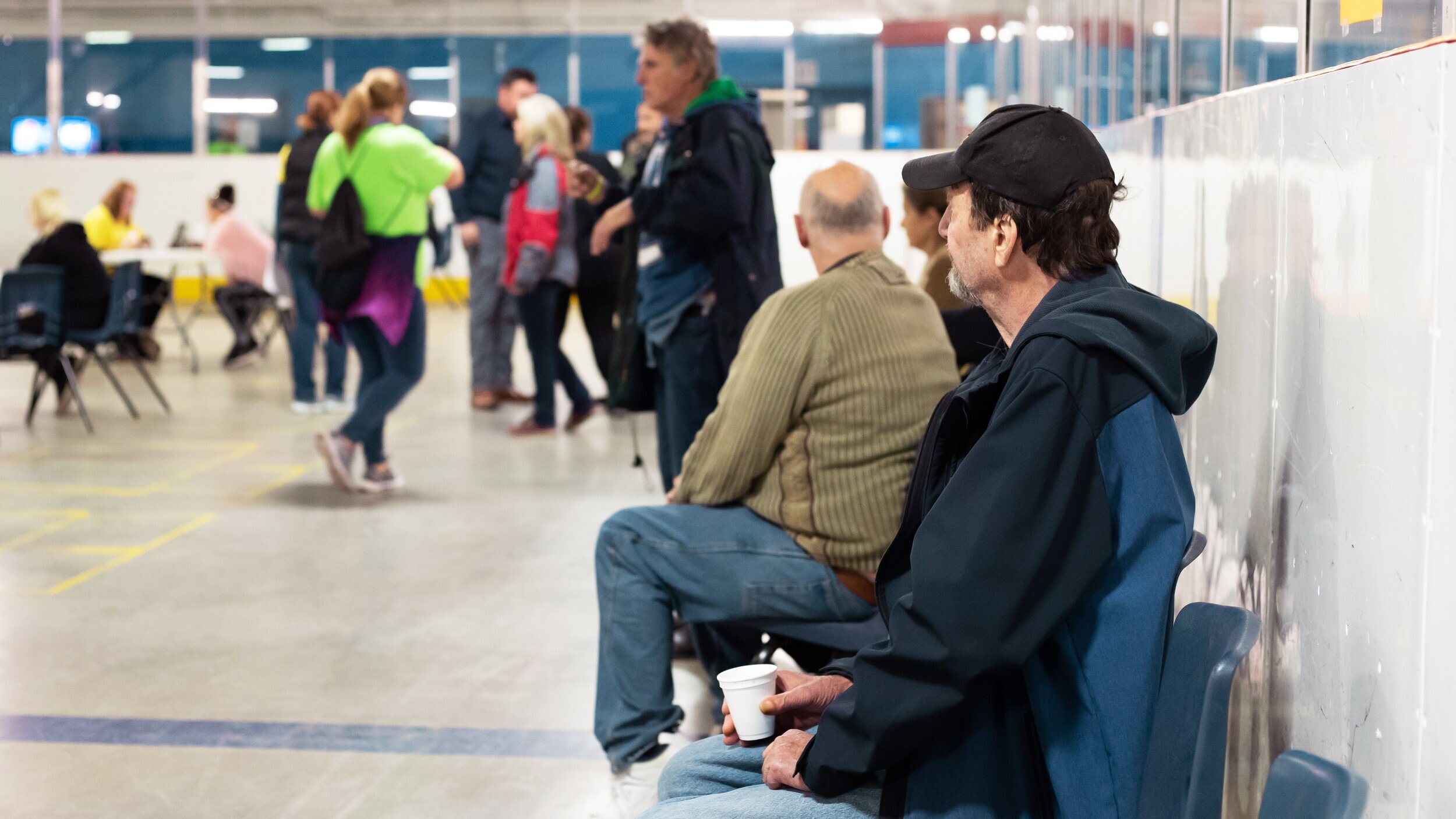What is the Solution to Poverty and Homelessness?
Photography by Nicole Osborne, NEO Image Creations
Written by Chuck Lazenby, Executive Director, Unity Project
What is the solution to homelessness and poverty? I have been asked this question countless times since the origins of Unity Project as a tent city protest in 2001. My answer has not changed in two decades: Housing is the solution to homelessness. Income is the solution to poverty.
Collectively, we have known the solution for years:
Increase minimum wage and social assistance rates and ultimately we need a basic/minimum income (by the way, we could and should do that tomorrow, easy!), and;
Create truly affordable, quality housing whether through de-commodification of housing, rent controls, refurb/retrofit/maintenance, or new public housing builds (by the way, creating jobs in the process).
Income and housing are the foundation from which we begin to support individuals as part of the community. People must be supported in their physical, mental and social well-being to maintain stability and achieve belonging, both as recovery from the trauma of homelessness and prevention against a constant cycle of new people.
It is not complicated. It serves the collective good. Yup, we are all in this together. Yet, collectively, we cannot coalesce around sound, actionable public policy. We tear our hair out coming up with new charity programming, but skirt around the real and obvious solutions. Why? Because collectively, we cannot shake ourselves free of the myth of our economic system; that homelessness and poverty is a personal crisis which belongs to the individual. This is a stigma. It is a falsehood. It blinds us to the systemic issue and results in our collective acceptance (and yes, the benefits to some) of inhumane public policy.
This is not a failure of government. The system is not broken. The system is working exactly as it geared and tooled to work. High unemployment keeps wages low. Miserable poverty and homelessness keeps low-wage workers saying “Yes, boss”. Thus, the rich get richer and the poor get poorer. Homelessness is increasing because poverty, like wealth, is an inheritance.
That means that more and more of us are climbing into that poverty boat or it is inching toward us, and our children and grandchildren, as the cost of living increases and our incomes remain relatively static or disappear.
The fact that the Canada Emergency Response Benefit (CERB) base level income for people struggling during the pandemic is more than double the social assistance rates for people struggling before the pandemic, really demonstrates that we punish people for being poor. Our public policy reflects our belief that poverty is a personal failure. We have labelled homelessness as defining the person (as undeserving) rather than a socio-economic and public health crisis that they experience (like a pandemic).
The COVID-19 pandemic exposed system gaps and failures. It also mobilized a system response.
Let us take this rare window of opportunity to challenge our own thinking and drive a social culture that demands a shift to foundational supports that are, now quite obviously, within our collective capacity and reach.
We need to shift from pity to compassion. We must shift from answering questions to questioning ourselves. We must shift from throwing up our hands to making demands of all of our elected officials. Because it’s clear we know what to do. It’s time to do it.

